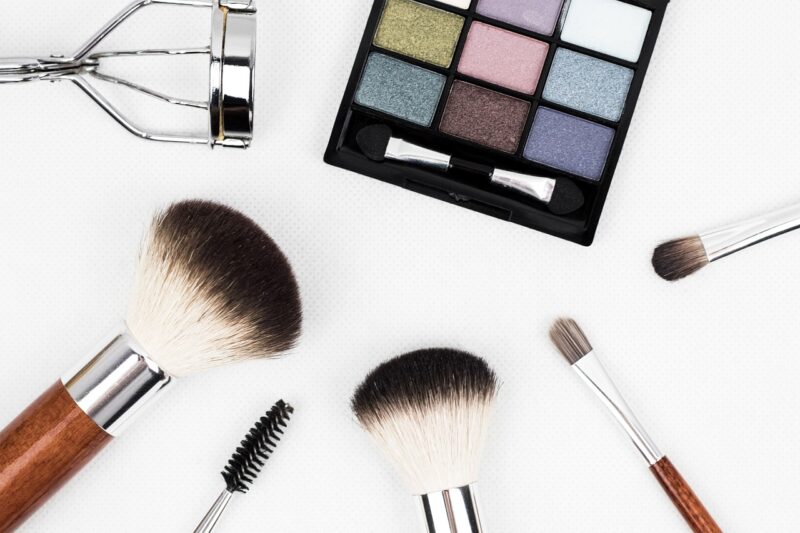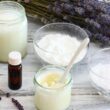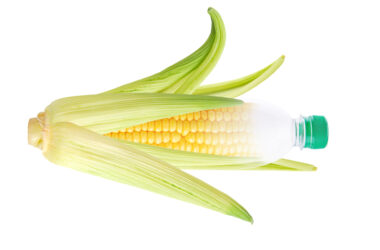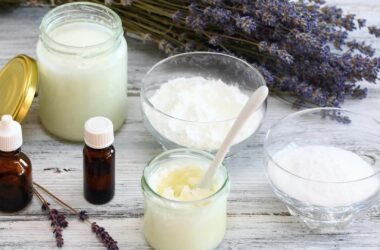Keeping your makeup brushes clean is essential for healthy skin and a flawless application. Dirty brushes can harbor bacteria, oils, and product buildup, which can cause breakouts and hinder the performance of your favorite beauty products. But don’t worry—cleaning your makeup brushes doesn’t require a fancy, store-bought solution. In fact, you likely already have all the ingredients you need right at home!
In this article, we’ll cover 10 DIY makeup brush cleaners that are effective, affordable, and easy to make. Say goodbye to dirty brushes and hello to fresh, spotless tools!
Introduction
When was the last time you cleaned your makeup brushes? If you’re like most people, it’s probably been a while. But did you know that makeup brushes can collect bacteria, oils, and dead skin cells over time? Yikes! That buildup can lead to breakouts and skin irritation. The solution? Regular cleaning!
Not only does cleaning your brushes keep your skin healthier, but it also extends the life of your brushes and ensures smoother makeup application. But you don’t need an expensive cleaner. In fact, you can whip up an effective cleaner using common household ingredients. Let’s dive into 10 easy DIY makeup brush cleaners you can make today.
DIY Makeup Brush Cleaners: An Overview
Why spend money on specialized brush cleaners when you can make your own at home? DIY makeup brush cleaners are cost-effective, often made from natural ingredients, and are just as effective as store-bought options. Plus, they allow you to know exactly what’s going onto your skin.
Here’s a look at 10 DIY solutions that use ingredients you probably already have in your kitchen or bathroom.
#1: Dish Soap and Olive Oil
This combination is a powerhouse cleaner! Dish soap cuts through grease and grime, while olive oil conditions the bristles of your brushes, keeping them soft and flexible.
- How to use: Mix one part dish soap with one part olive oil. Swirl your brushes in the mixture, then rinse with warm water until the water runs clear.
#2: Baby Shampoo
Baby shampoo is designed to be gentle, which makes it a fantastic option for cleaning delicate makeup brushes.
- How to use: Squeeze a small amount of baby shampoo into a bowl of warm water. Swirl your brushes in the solution, gently lathering them up, and rinse thoroughly.
#3: Vinegar and Water
Vinegar is a natural disinfectant that can help kill bacteria living in your brushes.
- How to use: Mix one part vinegar with two parts water. Soak your brushes for 10 minutes, then rinse with warm water. Be sure to rinse well to get rid of the vinegar smell!
#4: Coconut Oil
Coconut oil is not only great for your skin but also for your makeup brushes. It helps break down stubborn, oily makeup while keeping the bristles moisturized.
- How to use: Rub a small amount of coconut oil directly onto the brush, then rinse with warm water. You may need to follow up with a little dish soap to remove the oily residue.
#5: Baking Soda and Warm Water
Baking soda is a versatile household cleaner that works wonders on deep-cleaning makeup brushes.
- How to use: Dissolve a tablespoon of baking soda in a cup of warm water. Let your brushes soak for 15-20 minutes, then rinse thoroughly.
#6: Castile Soap
Castile soap is a natural, non-toxic cleaner that’s gentle on the skin and effective on brushes.
- How to use: Add a few drops of Castile soap to a bowl of warm water. Swirl your brushes in the mixture and rinse until the water runs clear.
#7: Micellar Water
Micellar water is known for its gentle yet powerful cleansing properties, making it a great option for cleaning delicate brushes like those used around the eyes.
- How to use: Pour some micellar water onto a cotton pad and gently swipe your brushes until clean. Rinse with water and let dry.
#8: Lemon Juice and Olive Oil
Lemon juice is a natural astringent with antibacterial properties, while olive oil conditions the bristles.
- How to use: Mix equal parts lemon juice and olive oil. Swirl the brush in the mixture, then rinse thoroughly with warm water.
#9: Hydrogen Peroxide and Dish Soap
For deep disinfection, hydrogen peroxide can help. This combination is especially useful for brushes that haven’t been cleaned in a while.
- How to use: Mix a tablespoon of hydrogen peroxide with a teaspoon of dish soap in a cup of water. Soak your brushes for 10 minutes, then rinse well.
#10: Rubbing Alcohol and Water
Rubbing alcohol is a great disinfectant that also helps the brushes dry faster due to its quick evaporation.
- How to use: Mix equal parts rubbing alcohol and water. Dip the brushes in, swish them around, and then rinse with water.
How to Properly Dry Makeup Brushes
Cleaning your brushes is only half the battle. Drying them properly is just as important! To avoid damaging the bristles, always lay your brushes flat to dry. Avoid standing them upright, as water can seep into the handle and loosen the glue holding the bristles in place. Also, avoid direct sunlight or heat, as this can warp the bristles.
Signs You Need to Replace Your Brushes
Even with regular cleaning, brushes don’t last forever. Look for these signs that it’s time to invest in new ones:
- Bristles are falling out
- The brush has lost its shape
- It feels rough against your skin
- It no longer applies makeup smoothly
If your brushes show any of these signs, it’s probably time for a replacement.
Conclusion
Cleaning your makeup brushes regularly is a must for maintaining both your skin and the brushes themselves. With these 10 DIY cleaners, you’ll have everything you need right at home to keep your brushes in pristine condition. Whether you prefer the simplicity of dish soap and olive oil or the gentle touch of baby shampoo, there’s a solution for everyone. So, what are you waiting for? Grab your ingredients and start cleaning!
FAQs
Your brush is clean when no makeup residue remains, and the water runs clear during rinsing.
How often should I clean my makeup brushes?
Ideally, you should clean your brushes once a week to prevent bacteria buildup.
Can I use dish soap alone to clean my brushes?
Yes, dish soap alone can work, but adding olive oil helps condition the bristles.
Is vinegar safe for all types of brushes?
Vinegar is safe for most brushes, but be sure to rinse well and avoid using it on natural hair brushes.
What’s the best way to dry brushes after cleaning?
Lay them flat to dry, avoiding direct heat and sunlight.
How do I know if my brush cleaner is working?
Your brush is clean when no makeup residue remains, and the water runs clear during rinsing.










